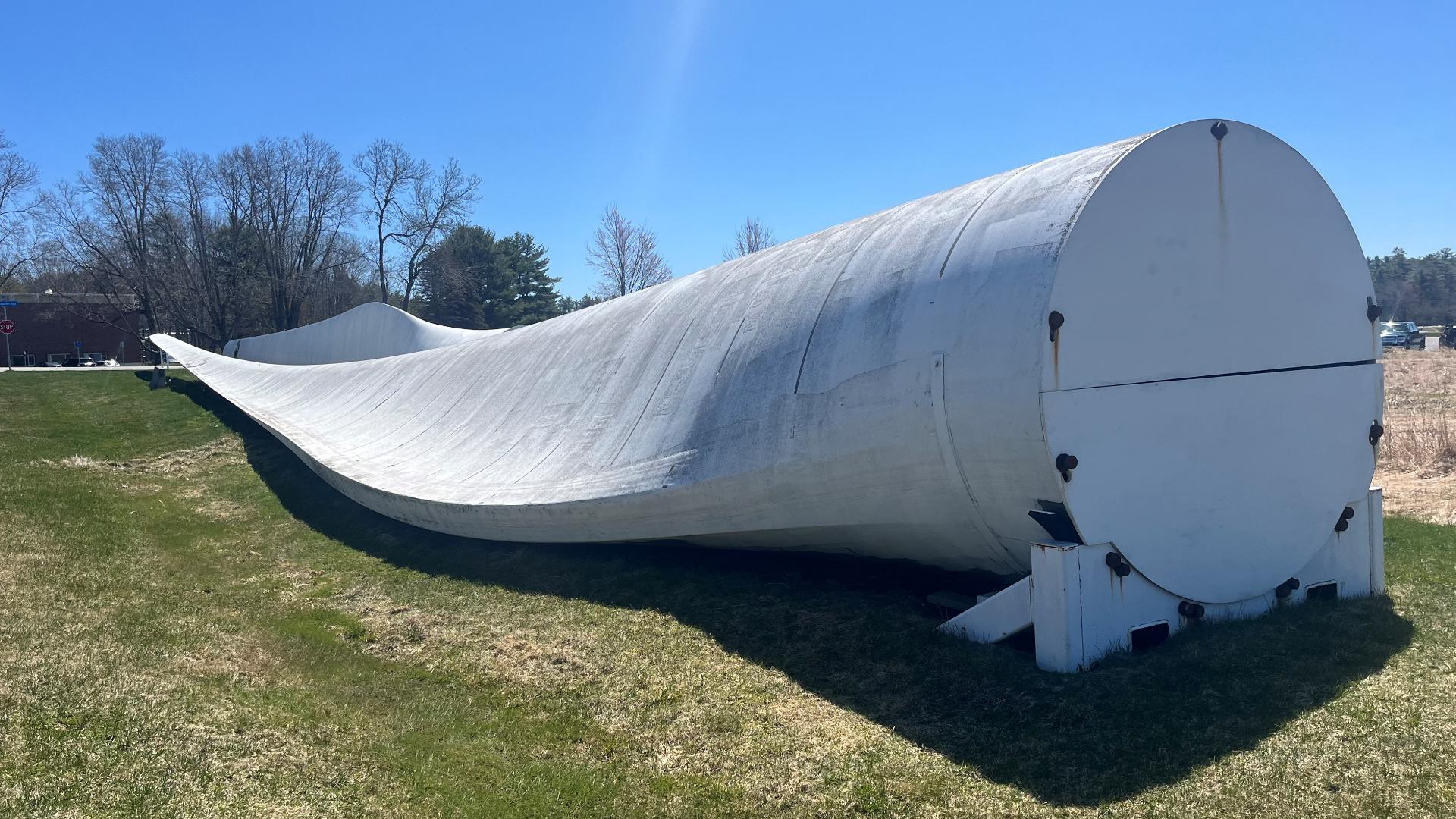ORONO, Maine — Pioneering innovation by scientists and engineering students at the University of Maine in Orono has caught the Fed's attention.
Researchers at the university recently received a federal grant to study the recycling of wind turbine blades for use in 3-D printing and the construction industry.
According to regulators, 400 wind turbines are located throughout the state. Most have massive blades that can span the length of a football field, to capture the available wind.
While wind energy is one of the fastest-growing renewable power sources, turbine waste is also becoming a critical issue.
Wind turbines last 20 years or more, with hundreds of blades heading to Maine landfills in a decade.
"It's projected that 13,000 tons of wind turbine blade materials will need to be managed in New England, and 8,000 tons will be in Maine alone," Reed Miller, a civil and environmental engineering professor, explained.
Professors, students, and researchers may be on the brink of a solution. They are cutting out sections of an aging wind turbine located on the grounds of UMaine's Advanced Structures & Composites Center.
“The turbine is hollow inside and is made of a mix of fibers and resins. Our pellets will be a mix of shredded blades and thermoplastics," Miller said.
The Department of Energy recently awarded UMaine $75,000 to boost recycling for the wind energy sector.
Researchers are shredding parts of the blade, recovering the material fibers, and using them as printing material for large-scale 3D printing projects. In April, the university unveiled the world's largest 3D polymer printer, four times the size of its predecessor, located inside the center.
The dean of UMaine's College of Engineering and Computing, Giovanna Guidoboni told News Center Maine that the project to repurpose aging wind turbines fosters innovation and shows students to chase their dreams.
"This will give UMaine students an edge wherever they go in their careers," Guidoboni said.
Roberto Lopez-Anido, a professor of civil engineering, showed us pellets milled from recycled turbines. A potential replacement for petroleum-based fibers that could be used to make precast concrete forms. Cheaper and more sustainable materials for the state's construction and marine industry.
"How can we avoid putting them in the landfill and returning them to a circular economy where the materials can be reused?" Roberto Lopez-Anido, a professor of civil engineering asked rhetorically.
Katie Schweizer has worked on the project as a graduate research assistant for two years. The Blue Hill native will begin a new career this fall as a structural engineer. She said the research is paving the way for sustainable materials in the construction industry known for concrete and steel.
"Definitely, within my career time, I could see the development of sustainable materials for construction within that sector," Schweizer enthused.
UMaine is now competing for a half-a-million-dollar prize from the Department of Energy for the recycling project. The winner is expected to be announced later this year.

